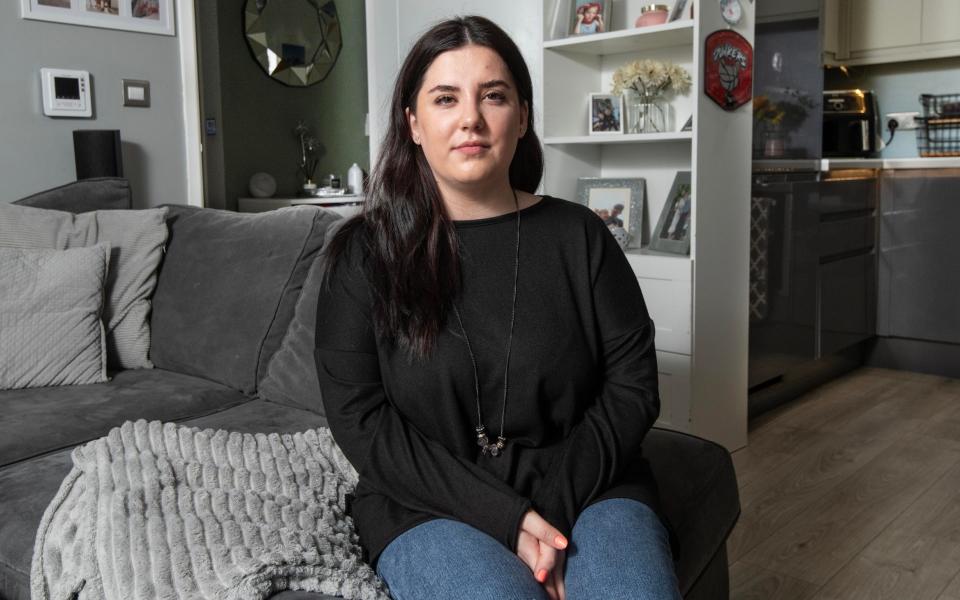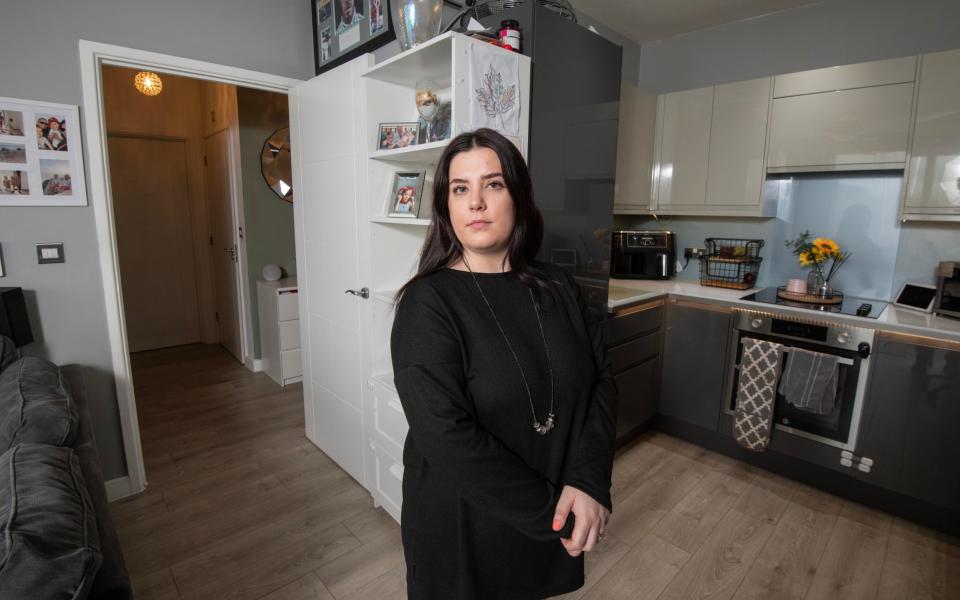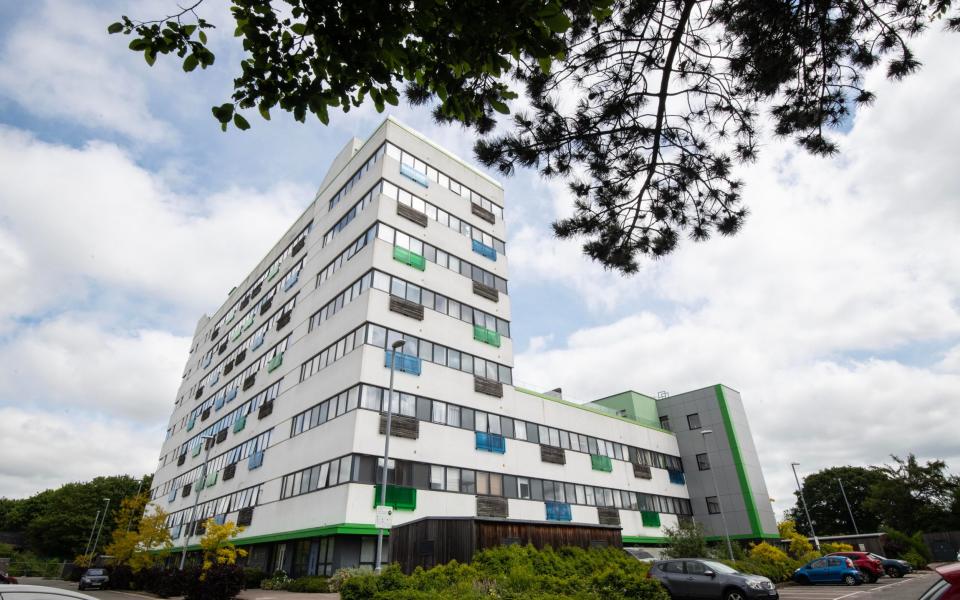‘We’re trapped in our shared ownership home – it’s impossible to sell up’

Aylee Theron is devastated. Eight years on from buying her first flat, the 27-year-old has been told it is worth just £1,750 more than what she paid for it.
Together with her partner, Ms Theron bought the property in Stevenage, Hertfordshire, on the government’s shared ownership scheme in 2016. Since then, they have had two sons and are desperate to sell up – but their property, which went on the market in September, has been down valued so many times, they now feel trapped.
The overall purchase price was £220,000 in 2016, making their 35pc share worth £77,000. In September, their surveyor valued the share at £84,000. Now banks say it’s worth just £78,750.
‘I’ve worked nights in a supermarket – for what?’

Two buyers have put in offers at this new price since it went on the market, but both have been rejected – not by Ms Theron, but by Nationwide.
In both instances, the building society’s surveyors down valued the property. The first time, by £20,000, which brought it back down to the purchase price. The second time, by £15,000, making their share worth just £1,750 more.
Ms Theron said: “The down valuations mean we don’t have enough for a deposit, once we account for fees and the stamp duty we’ll have to pay. If offers keep falling through, we won’t be able to move at all.
“I went back to work very quickly after having my boys because we wanted a house. I haven’t had as much time with them as I would like. I work nights at a supermarket to save on child care.
“Now it feels like someone is swiping away all that effort, all that saving, without a second thought.”
The couple are currently appealing the second down valuation, but this takes time. They have already lost out on one dream house they put an offer on, and now face losing another.

After the first down valuation, Nationwide told the estate agent – who then told Ms Theron – that the lower valuation was due to “cladding issues” and the fact the flat was facing a train track.
Cladding on the building was removed years ago during the pandemic, and when the family viewed the property they were told close travel links would add value – not take away from it.
Another two-bed, two-bath in the same building has sold for a full market value of £242,000. Another has just sold for £250,000, subject to contract. And a third, which does not have an ensuite like Ms Theron’s flat, has been valued at £240,000 by – as fate would have it – Nationwide.
Ms Theron said: “It’s like there’s a vendetta against our flat specifically. If the flat is unsafe, I want to know as my children and I live here. But that’s not what we’ve been told. The building has an EWS1 certificate saying it’s safe.”
‘Builders push people into shared ownership’
Every time the couple get a down valuation, they have to pay a surveyor on their side another £275 to re-value it – as valuations, in this instance, go out of date after just three months.
It is starting to feel like moving could be an impossibility, as the family continues to incur costs to sell it.
Ms Theron just had a third down valuation from a different lender which uses the same surveyor as Nationwide. They also decided the flat was worth just £225,000.
She said: “I’m at a loss. I don’t know what else to do. This whole process is just awful.
“The boys love football and basketball. Four people in a two-bed isn’t practical. We’re living on top of each other. It’s affecting the functionality of our family.”
Steve Duck, director at London-based Reside Mortgages, said he has seen a rise in down valuations. This month, three of his clients have been confronted with them – one of which saw a £900,000 property drop by £40,000.
Mr Duck said: “We mainly deal with people inside London and property appreciates a lot faster here. But outside London, it’s even more important to have a plan if you opt for shared ownership.”
Promoted as a way for struggling first-time buyers to get their foot on the housing ladder, shared ownership allows people to buy a share of a property rather than the whole thing. As they continue to live there, they can increase this share – a process known as “staircasing”.
But Mr Duck said: “You can only staircase a limited number of times before you have to buy 100pc. And not all lenders will allow you to staircase above 75p. After that, they expect you to buy all of it. There’s all these catches that buyers need to be aware of.
“If the value falls, then staircasing becomes cheaper. But it can be a gamble, especially if it’s a newbuild. We’ve seen some builders push people into shared ownership. You need a plan in place – are you going to get a pay rise? Could you use some inheritance to buy a greater share?”

‘Unbearable reality’
Earlier this year, MPs criticised the Government’s shared ownership scheme for trapping buyers in an “unbearable reality”.
A report by the Levelling Up, Housing and Communities (LUHC) found repair and maintenance costs were so high that many buyers never save enough money to own their property in full.
This means they build up less equity over time, stalling their wealth creation and hampering any effort of moving to a bigger – more expensive – property.
Henry Pryor, a buying agent, said: “Shared ownership is not the golden ticket companies would have you believe it to be. It’s often taken up by people who have no other options, and almost everyone who buys through it ends up bitterly regretting it.”
On Ms Theron’s successive down valuations, Mr Pryor said: “A bank’s valuer is always going to err on the side of caution, because they can be sued by the bank if they get it wrong. Their personal indemnity insurance is on the line.
“The last people they’re worried about are the borrower, and by extension the seller.”
Nationwide has said while it “sympathises with the situation Ms Theron finds herself in”, it cannot share any information about the case with the seller or The Telegraph due to “data protection”.
The Telegraph also approached the surveyor Nationwide uses, Countrywide Surveyors, but they declined to comment.

 Yahoo Finance
Yahoo Finance 